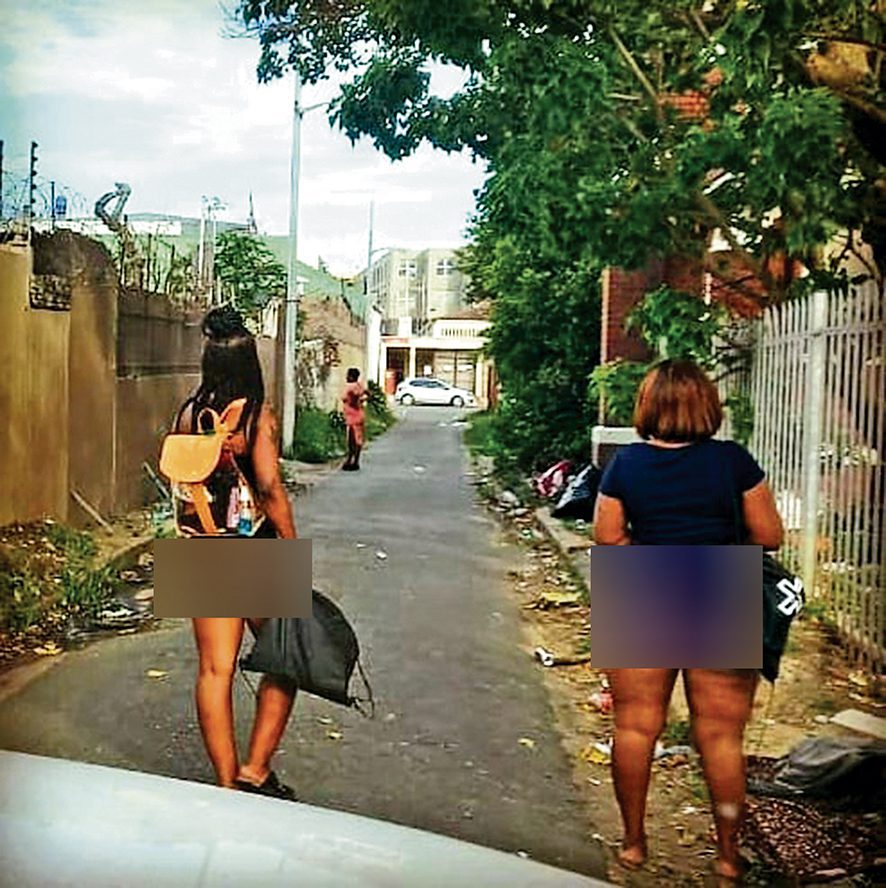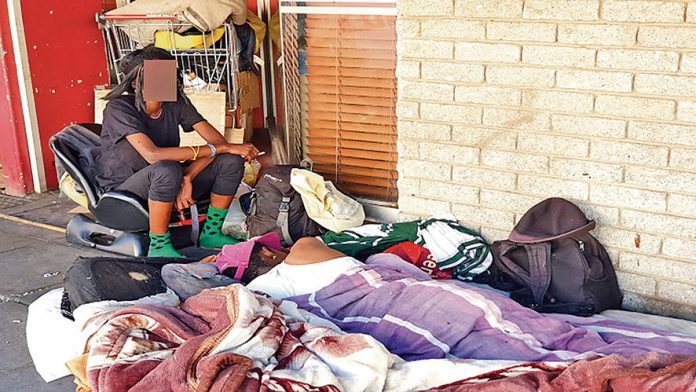Durban – Nomandla Mafuleka (not her real name) hesitates for a moment before she unpacks the anguish and trauma that young women endure on the streets of Durban.
Although the sex trade has increasingly become a deadly profession, it is their only way to survive.
“It is not something that I’m proud of, but all the girls I know who are homeless survive by selling sex. There’s no chance of escaping this reality, we use drugs as a coping mechanism.
“Prostitution is the only way of making money for the next fix because the cravings are unbearable,” she said.
The 23-year-old from Ophuzane village in KwaZulu-Natal said in recent years sex trafficking syndicates had been preying on young homeless women, abducting them to be used as sex slaves and some killed for their organs.
Mafuleka, who was orphaned at a young age, was lured to Durban six years ago aged 17 on social media by a job advert for a beauty spa.
Instead, the “spa” was a brothel located in Durban’s suburb of Morningside.
This was Mafuleka’s point of no return.
“I’ve survived sex trafficking countless times; on one occasion I was approached by a decent- looking man who said he wanted me for the night and would offer me R800 for my services, so I agreed. When we reached his house, he became aggressive and instructed me that I would now be working for him. He held me for three months against my will, alternating me in different brothels … the only payment I got was drugs. I was not the only one, there were other girls, some far younger than me,” she said.
She fled with other girls during a police raid on the brothel. Mafuleka’s claims are substantiated by Expose Hope, a Durban-based organisation that assists homeless sex workers with basic necessities.

Liza Moroney of Expose Hope said unemployment is the number one factor that causes women to end up on the streets.
“Many are promised jobs under false pretences and end up stuck in this situation and they can’t go back home with no income to support their families.
“We assist more than 300 ladies weekly by providing them with a hot meal, condoms, toiletries, clothing and shoes.”
She said the average age of homeless females who have turned to the sex trade for survival was 16 years.
Another woman who prefers using her street name Noxy also spoke of the danger of being homeless.
“I have come face to face with death several times. So, I would say despair, lies and drugs all come with living on the street.
“In essence, we live for the moment. I’ve lost many friends who were gang-raped and killed on the streets,” she said.
Another 23-year-old woman who declined to be named said she was lucky to survive life on streets.
“I was studying at one of the universities in Durban. When I was about to begin my second year, I couldn’t get funding. I lost my accommodation and I suffered depression and ended up being heavily hooked on drugs. I would usually hang around at nightclubs and would go with any man who buys me alcohol and offers food and a place to sleep. For close to six months, that was my life.
“I lived a life of sleeping with different men just for alcohol and accommodation. I ended up on the streets selling sex because as time went by, I became a familiar girl in the club and no men wanted to associate with me.”
The woman, who now works as a municipal clerk, said she was saved from the streets by a Good Samaritan, who took her to rehab.
“When he took me to his place, I thought he wanted my services. Instead, he sat me down and asked that I narrate my story to him. He took me to rehab and that is how I got my life back.”
Besides working, she is also completing her diploma in supply chain management through Unisa.
Raymond Perrier, a director at the Denis Hurley Centre, which assists homeless people to be integrated to society and reunited with their loved ones, said women makeup about 17% of people living on the streets in Durban and that the number had sharply increased during Covid-19.
Also read:
Muvhango welcomes new actress Angela Atlang
Grieving granny tells of amapiano king Mpura’s last wish
Covid-19 positive cases hit ‘Generations: The Legacy’
Max Lichaba hits out at step son
Khanyi’s boyfriend accused of being part of vehicle scam
The Braai Show producers demand an apology from AKA
Lwandle Ndaba explains why he released song about stepdad Max Lichaba
Follow @SundayWorldZA on Twitter and @sundayworldza on Instagram, or like our Facebook Page, Sunday World, by clicking here for the latest breaking news in South Africa. To Subscribe to Sunday World, click here.
Sunday World



